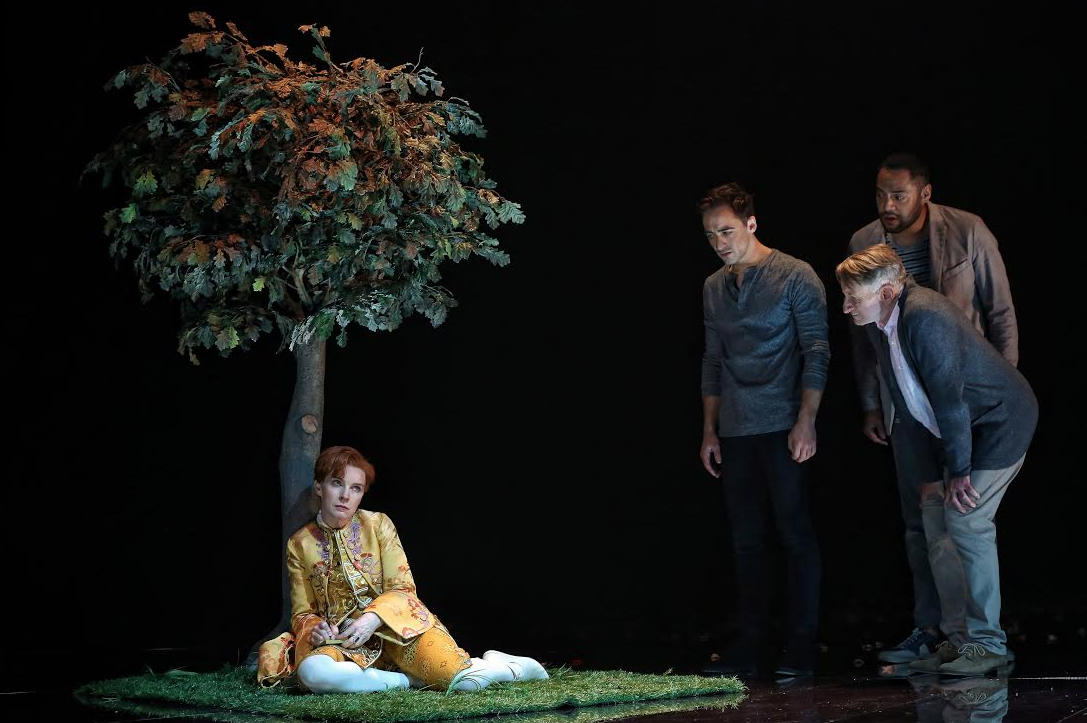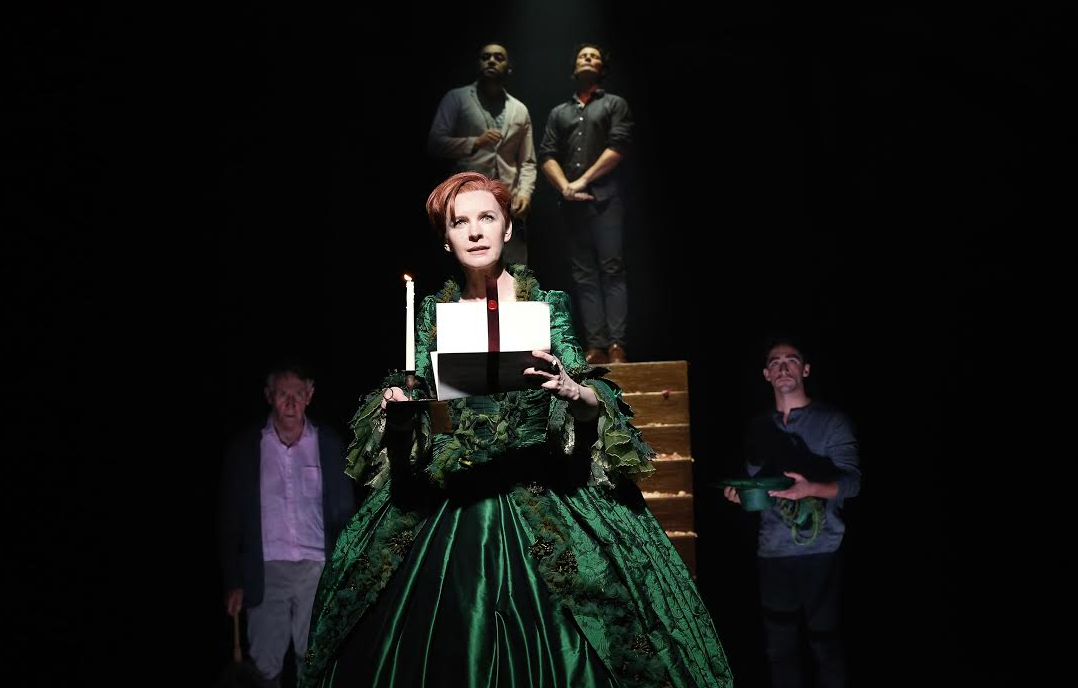★★★☆☆ An entertaining, gender-bending tumble through the centuries in need of a little less haste.
Drama Theatre, Sydney Opera House
November 13, 2015
Sarah Ruhl’s playful adaptation of Virginia Woolf’s 1928 mockumentary novel, Orlando: a Biography, is a theatrical Schrödinger’s cat. All at once it is both a work for the stage and yet distinctly literary in its narrated prose; it’s depictions have the immediacy of the present but are also historically distant; its characters – a carousel of figures both real and imagined – are as flippant in their genders as this play’s sex-swapping central protagonist. Perhaps most significantly, Orlando is simultaneously epic in its arc and message and yet so buoyantly glib that it’s lighter than air. At the heart of this gender-bending, epoch-hopping, anthropological romp through the life of Orlando is a touching exegesis on sex and sexuality and the liberal freedom or stifling etiquette that have underpinned what it means to be male or female throughout the ages.
Woolf’s aim with her novel was to subvert on multiple levels – her father, a biographer, had introduced Woolf to the format of chronicling a life and so adopting this stuffy medium was an eloquent revolt in itself. However given that the book was published the same year that women won the vote in Great Britain, it’s no surprise that in addition to capturing Woolf’s literary chutzpah, it also represents a first, flickering spark at the dawn of a new age of female independance.
 (photo: Prudence Upton)
(photo: Prudence Upton)
The fictional character Orlando was based on Woolf’s friend and lover, Vita Sackville-West, a real life torchbearer in the vanguard of dauntless women casting off the dusty vestiges of female oppression and subservient sexuality for a more complex, multifaceted, and above all modern existence. Aristocrat, poet, mother, free thinker and eccentric, Sackville-West’s swirling, intrepid spirit, that radiated both a strong, confident machismo and a softly sensitive femininity, defied the pigeonholed decorum that had always been demanded of her sex. It’s little wonder that the character she inspired should also challenge the usually immovable boundaries of gender.
As a young man of just 16, aspiring poet Orlando is favoured by Queen Elizabeth the First, who is instantly seduced by the shapeliness of the youth’s legs; he has lands, titles, and a life brimming with possibilities awaiting him. His first love, a Russian princess, continues to bewitch Orlando as the centuries fly past, and even when our hero turns heroine and discovers the cultural limitations of being a woman, the ambiguity of her desires continue to cloud her understanding of her place in the world.
Sydney Theatre Company’s resident director Sarah Goodes has constructed an almost Brechtian canvas for this play to exist in. The narrative momentum is driven at breakneck speed by the four man chorus, who hocket the dialogue between them with a frenetic, pinball energy. Dressed in casual present-day clothes, they slip in and out of character with the most economic amount of artifice, using jackets, shawls and bonnets to conjure the procession of characters. This supporting cast is unanimously excellent: John Gaden’s Queen Elizabeth is a skin-crawling letch, Garth Holcombe’s Archduke/Archduchess is delivered as a side-splitting caricature, Anthony Taufa shows a well-judged comedic turn and Matthew Backer’s Marmaduke has the sexual charisma of a matinee idol. Yet for all the skill on stage, the relentless drive of the action, revved up by the pace of the double revolves that spin the central steps of Renée Mulder’s mirrored set, leaves little space for this narrative to generate any gravity. Matters of love and loss are rushed through with a breezy nonchalance that often steals the potential impact they might have.
 (Photo: Prudence Upton)
(Photo: Prudence Upton)
Jacqueline McKenzie’s Orlando is a more roundly realised character, with detailed period costumes offering a conspicuous historical counterpoint to the mundane dress of the rest of the cast. McKenzie walks the tightrope of Orlando’s nimble sprint through history with confidence, keeping an intriguing consistency in her gait and delivery throughout which underlines the contradiction that the way the world treats Orlando is determined by biology and not character. Goodes’ coup de théâtre, when Orlando’s naked body heralds the transition from male to female with bold, poetic clarity, is a moment of poignant weightlessness in this merry tumble of a production. For a few seconds a spotlight shines – figuratively and literally – on the deeper meaning of this work, but it is sadly all too brief.
Sydney Theatre Company present Orlando at the Sydney Opera House Drama Theatre, until December 19.











Comments
Log in to join the conversation.